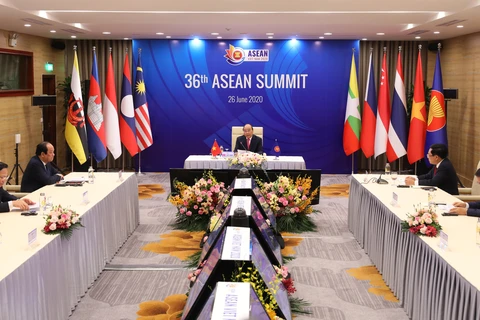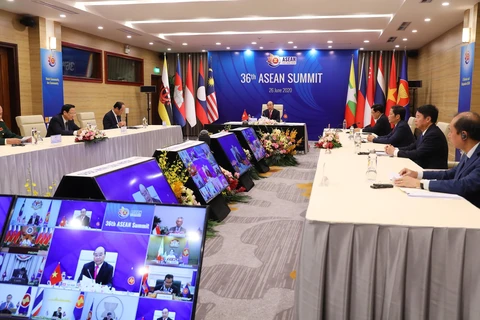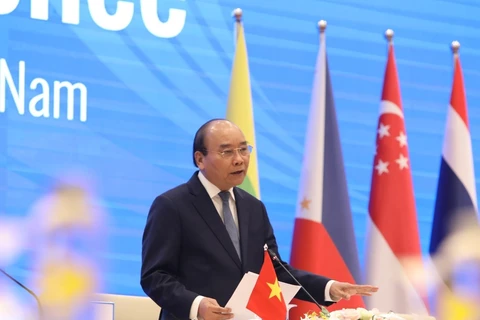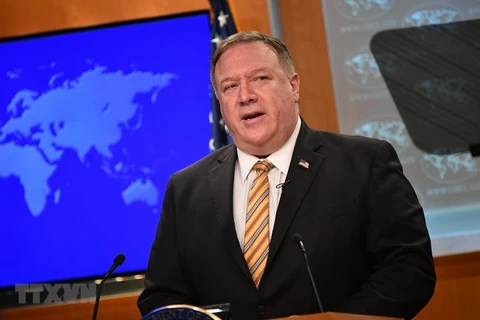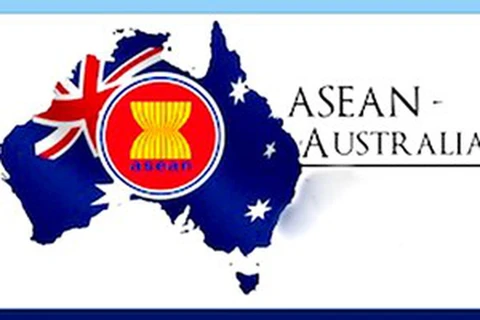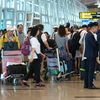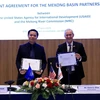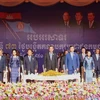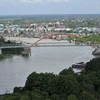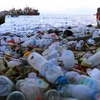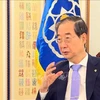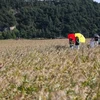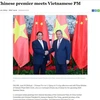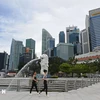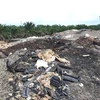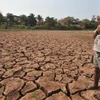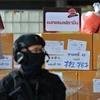 Deputy Foreign Minister Nguyen Quoc Dung speaks at the Special ASEAN-Australia Foreign Ministers' Meeting on COVID-19 on June 30 (Photo: VNA)
Deputy Foreign Minister Nguyen Quoc Dung speaks at the Special ASEAN-Australia Foreign Ministers' Meeting on COVID-19 on June 30 (Photo: VNA) Hanoi (VNA) – Foreign ministers of ASEAN member countries and Australia agreed to enhance cooperation in COVID-19 control and vaccine development at a teleconferenced special meeting on June 30.
Authorised by Deputy Prime Minister and Foreign Minister Pham Binh Minh, Deputy Foreign Minister Nguyen Quoc Dung, head of the ASEAN Senior Officials’ Meeting (SOM) delegation of Vietnam – the country holding the bloc’s chairmanship this year, attended the event.
ASEAN and Australian officials pointed out that the ongoing complex developments of the pandemic pose latent risks of a second wave of infections, which requires countries to stay vigilant.
The two sides agreed to step up sharing information and experience, improving response capacity, and work together to effectively contain the outbreak. They also agreed to coordinate closely to develop and produce COVID-19 vaccines and medicine, to ensure broad access for the public.
The officials re-affirmed their countries’ commitments to supporting one another’s citizens affected by the pandemic and creating conditions for repatriation if there are demand and situation permits.
At the meeting, ASEAN and Australia also said they will work closely to minimise the pandemic’s socio-economic impacts, support the recovery and maintenance of regional and global supply chains, and discuss measures for gradually easing and lifting travel restrictions among them, including the possibility of setting up travel corridors among the countries, under suitable medical conditions.
They will increase capitalising on existing mechanisms like the ASEAN-Australia-New Zealand Free Trade Agreement and the economic assistance and development cooperation programmes of Australia, while actively helping to promote multilateral trade and the signing of the Regional Comprehensive Economic Partnership (RCEP).
Besides, the countries said they will coordinate to ensure peace, security, stability and respect for law, thus creating favourable conditions for efforts to concentrate on the COVID-19 combat in the region.
ASEAN countries also appreciated Australia’s assistance for the bloc in the pandemic prevention and control, both at the regional level and via bilateral cooperation programmes.
Officials of the Southeast Asian nations proposed Australia actively support ASEAN’s initiatives like the COVID-19 ASEAN Response Fund and the region’s stockpile of medical supplies, and help the bloc build a master plan for recovering from and mitigating impacts of the pandemic.
Australian Foreign Minister Marise Payne reiterated that her country attaches importance to ASEAN and puts the grouping at the centre of its Indo-Pacific strategy.
Australia highly values ASEAN’s efforts in COVID-19 response and pledges to continue financial aid for the bloc and its members to improve the capacity of their healthcare systems, she noted.
On this occasion, Payne also presented several proposals, including the ASEAN-Australia initiative on health security, political-security cooperation between the two sides, more medical scholarships for ASEAN countries, and an aid package of 280 million AUD (192.4 million USD) for ASEAN to fight the coronavirus.
Addressing the special meeting, Deputy Foreign Minister Nguyen Quoc Dung said ASEAN has shown the highest political resolve and promoted joint actions in line with the bloc’s theme of “Cohesive and Responsive” for 2020.
As each other’s strategic partners, ASEAN and Australia should increase sharing information and experience, providing technical assistance, improving capacity, and staying vigilant against a second wave of COVID-19. They should also ensure the interests and equal treatment of ASEAN countries’ citizens in Australia, and boost cooperation to minimise the pandemic’s socio-economic impact towards sustainable recovery, he noted.
In the current context, countries need to uphold their sense of responsibility even more and avoid taking any action that causes instability or negatively affects efforts to curb the pandemic, according to him./.
VNA
